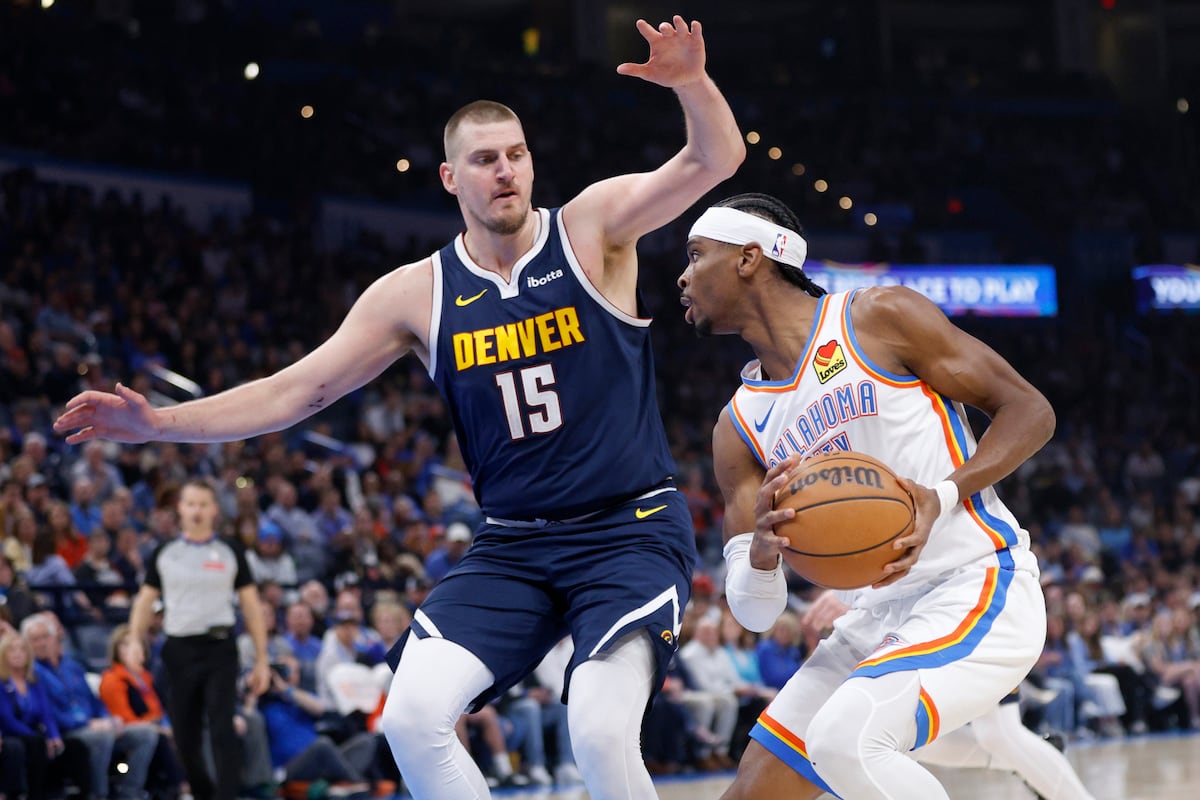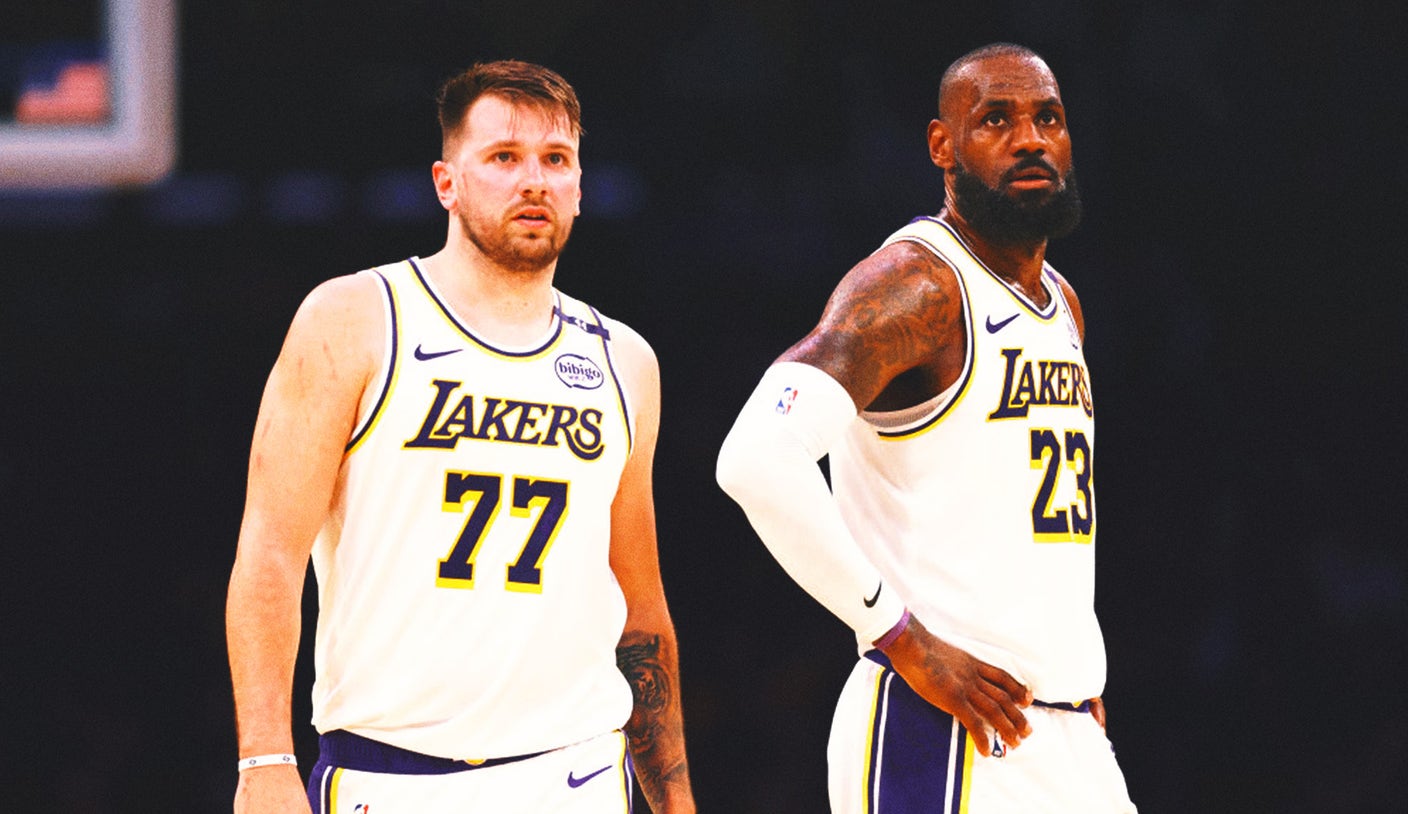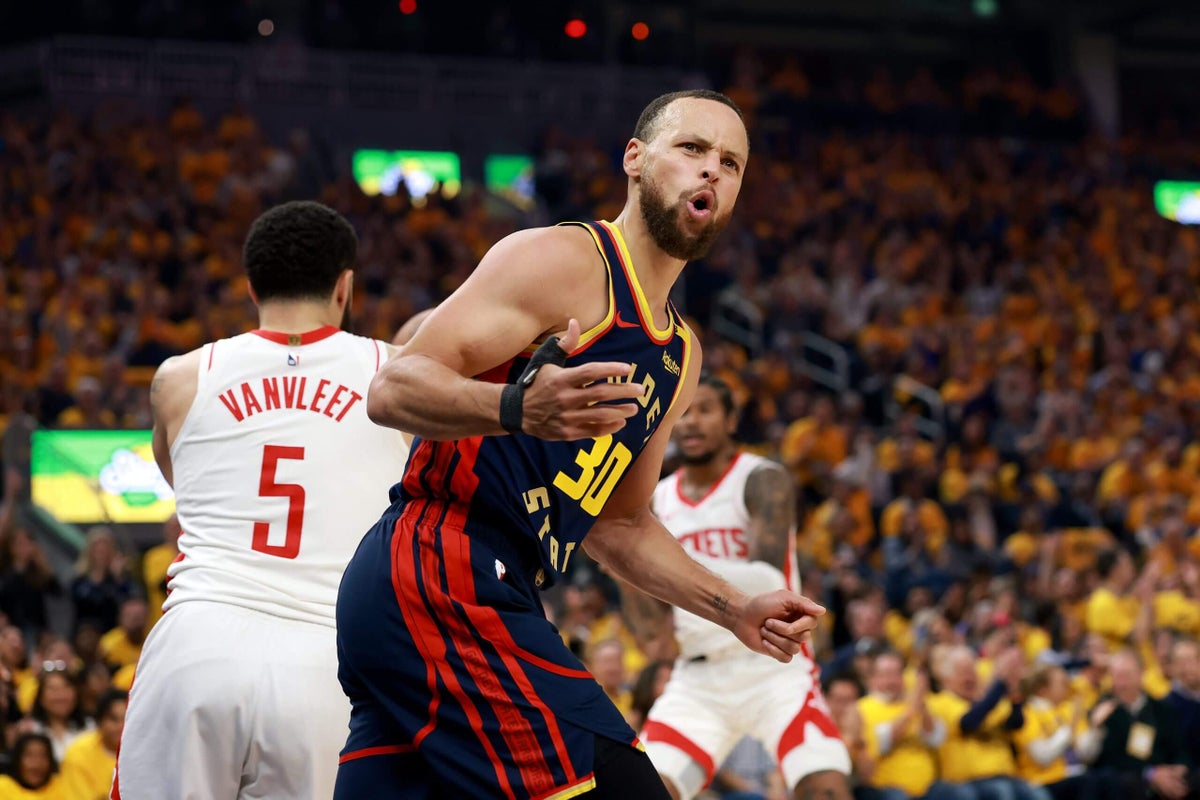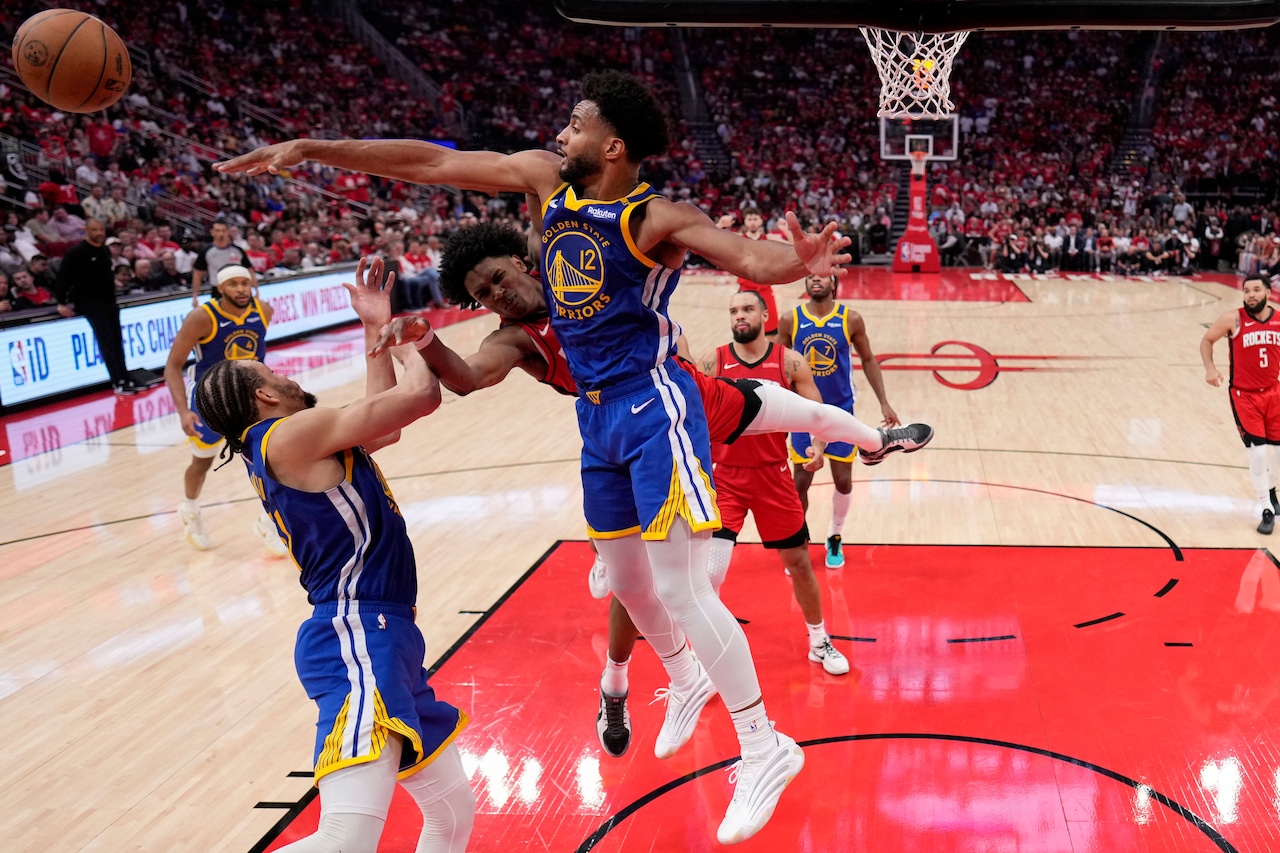
It’s simultaneously one of the most fun and one of the most stressful parts of the beat writing job: voting for the NBA’s annual awards.
This year, I was once again selected as one of the 100 media members who decide the NBA’s individual honors. (Generally, the league allocates one vote to the Jazz beat writers, which gets rotated around the various outlets on a year-by-year basis.)
In the interest of transparency, I’ll again reveal who I voted for, along with my rationale for doing so in each category. My votes haven’t always been popular, as I’m probably more willing to break with consensus than the average voter … but I think it’s the right thing to do to explain why the votes went in the direction they did.
NBA Coach of the Year
1. Kenny Atkinson (CLE)
2. J.B. Bickerstaff (DET)
3. Ime Udoka (HOU)
The Cavaliers, even after trading for Donovan Mitchell, had kind of topped out. Last season, they only accumulated 48 wins (admittedly in a season full of injury woes), after winning 51 in the previous year. They looked like a first- or second-round out, and played the part.
Firing J.B. Bickerstaff looks like a master stroke now — weirdly, for both the Cavs and Bickerstaff. Under Atkinson, the Cavs have exploded to a 64-win team and clear title contenders. Atkinson got the best season out of Darius Garland, Evan Mobley, and Ty Jerome‘s careers. He also, and this is key, got Donovan Mitchell to take a slight step back to open up the offensive game of his teammates.
Bickerstaff, meanwhile, changed the culture of the perennial losing Pistons. I do think Monty Williams deserves a significant amount of blame for last year’s 14-win season — to lose 28 games in a row while actually trying to win is an absurdly bad coaching job. But Bickerstaff brought an identity and toughness back to Detroit, getting good play out of a collection of youth and journeymen around Cade Cunningham.
Udoka has done much the same for the Rockets, who were in essentially the same situation as the Jazz a few years ago. They finished second in the West, pretty impressive.
Clutch Player of the Year
Los Angeles Lakers forward LeBron James (23) keeps the ball away from Utah Jazz forward Lauri Markkanen (23) during the second half of an NBA basketball game Sunday, Dec. 1, 2024, in Salt Lake City. (AP Photo/Bethany Baker)
1. LeBron James (LAL)
2. Jalen Brunson (NYK)
3. Nikola Jokic (DEN)
I was the only voter who placed LeBron James No. 1, but I have a pretty good rationale.
The website inpredictable.com keeps track of win probability for every play in the NBA. In other words, how much more likely is each team to win the game as a the result of every shot, pass, rebound, steal, block, and turnover? Overall, Jokic led the league by adding 9.75 wins to his team’s win probability through his actions; Gilgeous-Alexander finished second, with 9.65 wins. Hey, that MVP race is close.
But Inpredictable also has a separate category in which they keep track of just a player’s added win probability in clutch situations alone. Their definition of clutch is relatively broad, including much of the fourth quarter if the game is close enough, but I actually like that. And by that definition … LeBron James led the league with 3.83 wins added. Brunson was second, 3.70 wins added, and Jokic added 3.35 wins for third.
So that was my ballot. I can’t think of a better way to vote on “clutch player of the year” than by answering the question of who raised their team’s win probability most in clutch situations.
Sixth Man of the Year
1. Payton Pritchard (BOS)
2. Malik Beasley (DET)
3. Ty Jerome (CLE)
The depth of these three teams was, I think, a huge reason they were so successful in the regular season.
Payton Pritchard rules. I’d consider him easily one of the top 50 players in the NBA this year. He played 28 minutes a game this season, with an effective field goal percentage of 62%. That ranked 11th in the league and better than, say, Kevin Durant. Obviously, the 40% 3-point shooting is the key here, but he‘s also really smart about attacking those closeouts and scoring inside efficiently too. Plus, unlike other sixth-man award winners of the past, he‘s a pest defensively too.
The Celtics pay him about $8 million per year for the next three seasons. That’s insanely good value; he might be the best contract in the league.
Malik Beasley, former Jazzman, finished fully second in the league in 3-pointers this year — just one behind Anthony Edwards, but ahead of noted 3-point shooter Steph Curry. (How’s that for understating it?) That level of shooting volume carried him to 16 points per game and helped carry the Pistons to a solid playoff spot. Jazz fans know Beasley is hot and cold … but when he‘s hot, as he was all season, the makes are simply super valuable.
Ty Jerome was near-anonymous in his first five years as a player after being drafted 24th in 2019, hovering around replacement level. Last year, he had ankle surgery and missed all but two games of the season. This year, though, he stunned by being the best true backup in the league, playing 19.9 minutes per game at a super high level.
I’m generally fine with the NBA’s 65-game and 20-minute per game limit on awards, but for Most Improved Player, it makes no sense. Jerome would have been a legitimate candidate there if he qualified.
Rookie of the Year
(Bethany Baker | The Salt Lake Tribune) Utah Jazz guard Collin Sexton (2) looks to shoot as he is defended by Memphis Grizzlies forward Jaylen Wells (0) and Memphis Grizzlies center Jay Huff (30) at Delta Center in Salt Lake City on Tuesday, March 25, 2025.
1. Jaylen Wells (MEM)
2. Stephon Castle (SAS)
3. Zach Edey (MEM)
Castle was the runaway winner of this award, and I think fairly so. After Victor Wembanyama went down with his blood clot issue, Castle took on a much larger role for the Spurs and scored a lot of points. He also is a contributor on the defensive end. He has an exciting career ahead of him.
However — and this is a continued source of difference between me and the rest of the voters with regards to Rookie of the Year specifically — he missed a lot of shots. Shooting splits of 42%/28%/72% are only OK. Shooting efficiency matters to me, a lot, because we‘ve found over decades of statistical analysis that it is the No. 1 aspect of good offensive play that leads to wins.
Jaylen Wells, though, stepped into the Grizzlies’ starting lineup, stayed there all season, frequently guarded the opponent’s best player, and never stepped outside of his role. He made a good number of open shots provided for the offense, avoided turnovers, and generally played 2,000 minutes of extremely passable basketball. It wasn’t sexy at all — but it is extremely hard to fit into an NBA starting lineup as a rookie and help a winning team, and Wells did that.
The advanced metrics, like estimated plus-minus (EPM), consider him 2024-25’s best rookie, and I agree.
Edey’s third for those same advanced metrics reasons, but he started to get picked on defensively at points during the year. I’m still broadly skeptical of him being a huge plus in his career in the playoffs, but in a weak class, him being a minutes-eater is enough to get him up there.
All-Rookie First Team
1. Jaylen Wells (MEM)
2. Zach Edey (MEM)
3. Stephon Castle (SAS)
4. Donovan Clingan (POR)
5. Kel’el Ware (MIA)
All-Rookie Second Team
1. Zaccharie Risacher (ATL)
2. Alex Sarr (WAS)
3. Kyle Filipowski (UTA)
4. Isaiah Collier (UTA)
5. Quinten Post (GSW)
If we were just comparing second halves, Clingan might have been selected over Edey among the top-three rookies; heck, Ware or Risacher might have been as well. Quinten Post fits in the “minutes eater on a good team” category.
(Bethany Baker | The Salt Lake Tribune) LA Clippers guard Bogdan Bogdanovic (10) drives to the basket as Utah Jazz forward Kyle Filipowski (22) and Utah Jazz guard Isaiah Collier (13) defend in NBA action at the Delta Center in Salt Lake City on Thursday, Feb. 13, 2025.
Kyle Filipowski and Isaiah Collier, the Jazz guys, both look to have good futures ahead of them. Filipowski looks like a future Kelly Olynyk, and his offensive versatility fits a lot of what NBA teams want in the modern era. Collier can’t shoot, which prevents him from being any higher than second team, but his playmaking nearly single-handedly made the Jazz semi-watchable in the second half of the season. He‘s a unique pass-first point guard in an era where that is super rare, especially among rookies.
Most Improved Player
1. Dyson Daniels (ATL)
2. Ivica Zubac (LAC)
3. Amen Thompson (HOU)
The Athletic’s John Hollinger put Daniels’ case best: “Daniels should be a no-brainer choice. He went from getting a DNP-coach’s decision in his final game of 2023-24 to possibly winning Defensive Player of the Year in 2024-25. I’d say that’s a pretty dramatic uptick in his fortunes.” Obviously, if this happened to an offensive player, he‘d definitely win the award.
But Ivica Zubac was a real consideration here. He went from above-average starting center to legitimately one of the best in the NBA this season, he ended up making my All-NBA third team thanks to the huge minutes load and the fact that he was the consistent rock pushing the Clippers to the West’s fifth seed.
Thompson actually was my pick for Defensive Player of the Year, and he took on a much higher percentage of the Rockets’ playmaking responsibilities this year, too. It’s always a bit weird to pick second-year players for this award… but Thompson did improve.
Defensive Player of the Year
(Bethany Baker |AP) Utah Jazz guard Keyonte George (3) dribbles past Houston Rockets forward Amen Thompson (1) during the first half of an NBA basketball game Saturday, Feb. 22, 2025, in Salt Lake City
1. Amen Thompson (HOU)
2. Draymond Green (GSW)
3. Dyson Daniels (ATL)
It’s funny: the four highest rated per-minute defenders in the NBA per EPM aren’t eligible for this award. Alex Caruso played only 54 games, Ausar Thompson played 59, Kris Dunn played too many games below 20 minutes, and Victor Wembanyama, who absolutely would have won this award, perhaps unanimously, didn’t end up playing enough games either because of a blood clot issue.
No. 5 on the EPM list was Amen Thompson, who is my vote for the award. I’ll say this: I had more fun watching Thompson than any other defender this year. He flies around defensively with awesome athleticism, and his basketball IQ for a second-year player is remarkable. The Rockets were the league‘s fourth-best defense this year, and I think it was in large part due to Thompson.
I didn’t want to put Draymond Green this high up, because his podcast-driven bluster about winning the award does grate. The Warriors’ defense in the first half of the year wasn’t exceptional, either. But Green does have a pretty good case, I have to admit: he had the highest D-LEBRON among eligible candidates, and he does remain, even at 35, a force defensively.
Daniels led the league in steals by a gazillion miles: he averaged 3 per game, and the next highest qualifier (Jokic) finished with 1.8 per game. Normally that’s a DPOY-winning case on its own, but, uh, the Hawks were 19th defensively and weren’t a whole lot better in Daniels’ minutes.
All-Defensive First Team
1. Dyson Daniels (ATL)
2. Amen Thompson (HOU)
3. Toumani Camara (POR)
4. Draymond Green (GSW)
5. Evan Mobley (CLE)
All-Defensive Second Team
1. Lu Dort (OKC)
2. Jalen Williams (OKC)
3. Jaren Jackson, Jr. (MEM)
4. Ivica Zubac (LAC)
5. Rudy Gobert (MIN)
Evan Mobley ended up winning DPOY — I didn’t have him in my top three thanks to the Cavs’ second-half defensive performance and the fact that he has Jarrett Allen behind him. The defensive metrics are only OK. He‘s definitely in the first team though, deservedly so. I thought, of all of the defenders against the Jazz I saw this season, Toumani Camara made the Jazz’s ballhandlers’ life hardest. I was also swayed by former Tribune reporter Bill Oram’s Camara case.
Jaren Jackson and Rudy Gobert are going to be in All-Defensive teams until they retire. Lu Dort and Jalen Williams led the Thunder to the league‘s best defense — that they weren’t higher is reflective of OKC’s all-encompassing dominance. They have Alex Caruso and Chet Holmgren and Shai Gilgeous-Alexander defending, too? It’s unfair. The numbers love Zubac defensively, thanks to the Clippers’ excellent defense with him playing incredibly solid defense down low.
Most Valuable Player
Denver Nuggets center Nikola Jokic, right, goes up for a basket as Utah Jazz center Oscar Tshiebwe, left, defends in the first half of an NBA basketball game Friday, March 28, 2025, in Denver. (AP Photo/David Zalubowski)
1. Nikola Jokic (DEN)
2. Shai Gilgeous-Alexander (OKC)
3. Giannis Antetokounmpo (MIL)
4. Jayson Tatum (BOS)
5. Donovan Mitchell (CLE)
I voted Jokic.
I legitimately lost sleep as the result of the decision here: Jokic vs. Gilgeous-Alexander. It is the closest MVP race in my memory, with two legitimately deserving candidates. How do you vote against either the best player on a legitimately historic team having an incredibly efficient season — or Nikola Jokic, three-time MVP winner, having even his best-ever season?
In the end, I voted for the more generational player. In my last ballot, I voted for Joel Embiid’s MVP season over Jokic, a decision that is still defensible but was made to look a bit silly in the wake of the playoffs that season, where Jokic dominated to send the Nuggets to an NBA title. To skip out on voting on Jokic again, the best player of this decade, seemed like something I might potentially regret later.
Jokic put up 29.6 points (third in the league), 12.7 rebounds (third), and 10.2 assists (second) per game this year, on absolutely absurd efficiency. But despite his own insane-o counting stats, nobody in the NBA makes his teammates better. He saved Russell Westbrook’s career this year, he carried Jamal Murray and Michael Porter Jr. all year, and Christian Braun and Aaron Gordon subsist on his passes on cuts and outlets. SGA has better teammates. Jokic makes his teammates better.
Jokic shot 45% on threes this year, by the way, if you take out his penchant for shooting every 80-foot shot he can at the end of quarter buzzers. He had 22 heaves this year, SGA had one. Just a historic year, a historic contest, and huge credit for SGA for even getting close.
I had Tatum ahead of Antetokounmpo for most of the season, until a late run by Giannis pushed him ahead. In the end, Antetokounmpo just can do things Tatum can’t. Tatum, though, gets too much criticism from the general public for the top-five player he is.
Fifth is a tricky call, but I voted Mitchell in recognition of the Cavs’ excellent season.
All-NBA First Team
1. Nikola Jokic (DEN)
2. Shai Gilgeous-Alexander (OKC)
3. Giannis Antetokounmpo (MIL)
4. Jayson Tatum (BOS)
5. Donovan Mitchell (CLE)
All-NBA Second Team
1. Cade Cunningham (DET)
2. LeBron James (LAL)
3. Stephen Curry (GSW)
4. Anthony Edwards (MIN)
5. Jalen Williams (OKC)
All-NBA Third Team
1. Jalen Brunson (NYK)
2. Evan Mobley (CLE)
3. James Harden (LAC)
4. Ivica Zubac (LAC)
5. Karl-Anthony Towns (NYK)
Don’t think there are a ton of controversial choices here — the 65-game limit does rule out some competing candidates. Devin Booker would normally make these squads, but the Suns were abysmal this year. Darius Garland was a difficult cut, but went with Zubac, Towns, and Mobley given their excellent advanced metrics. Derrick White got consideration as well.


